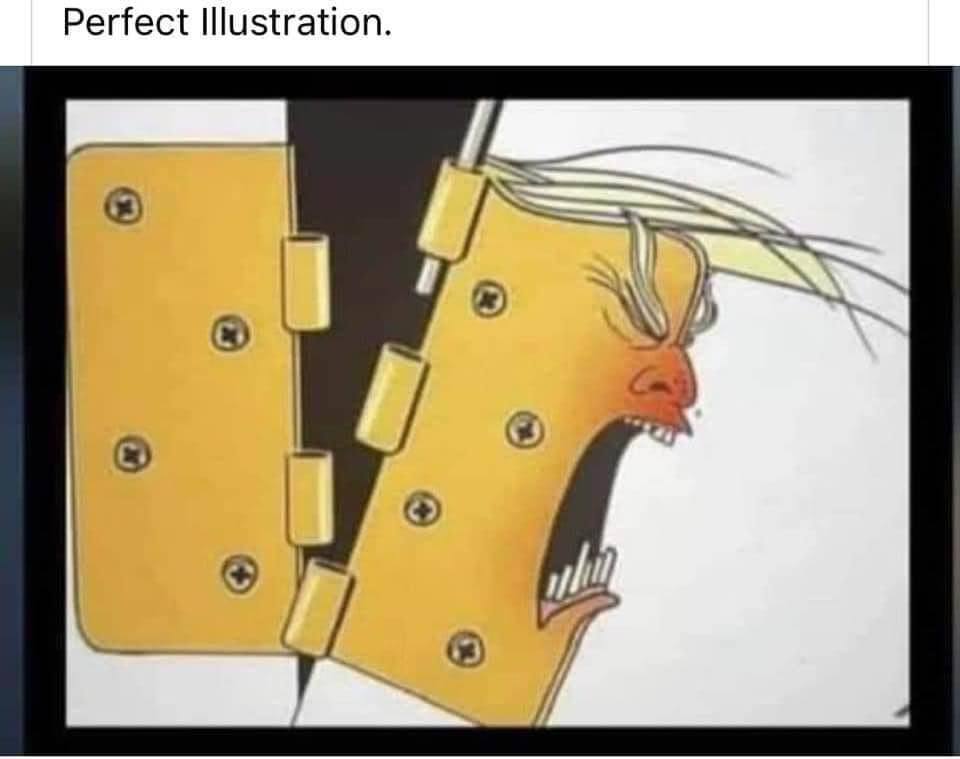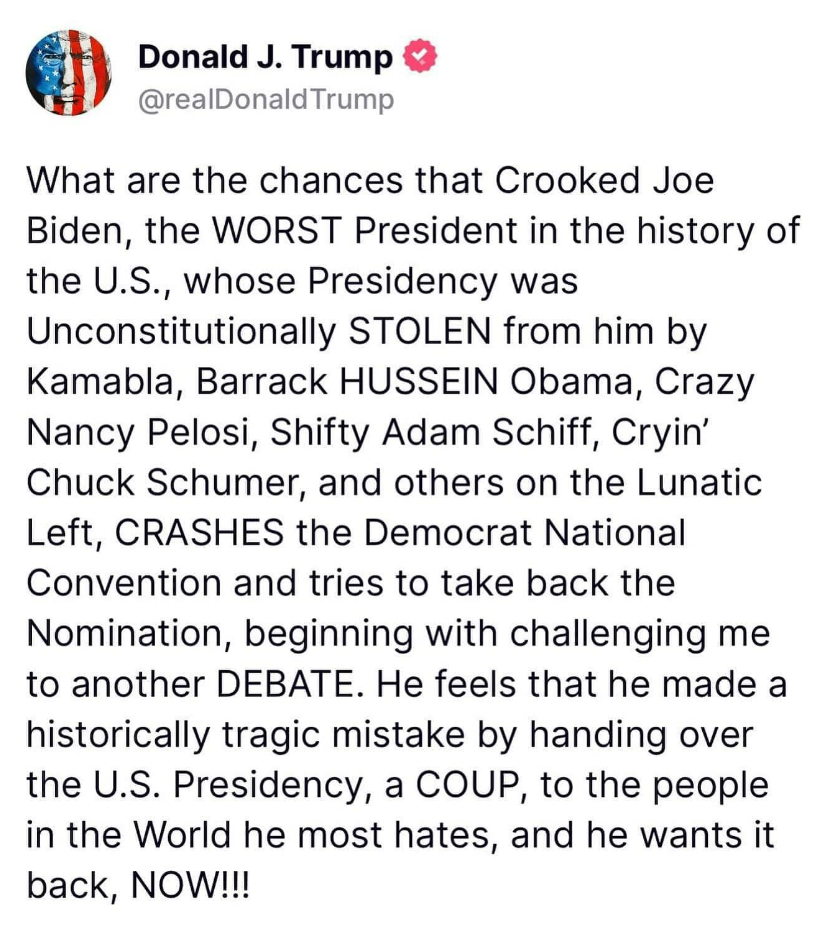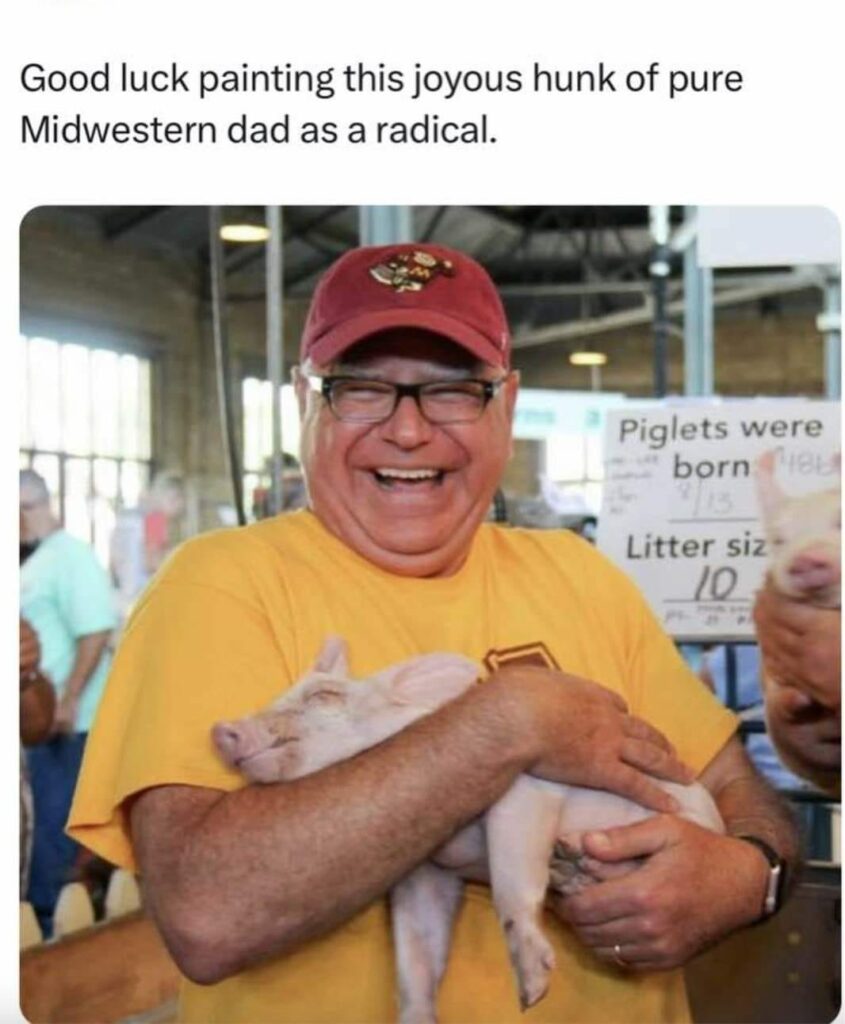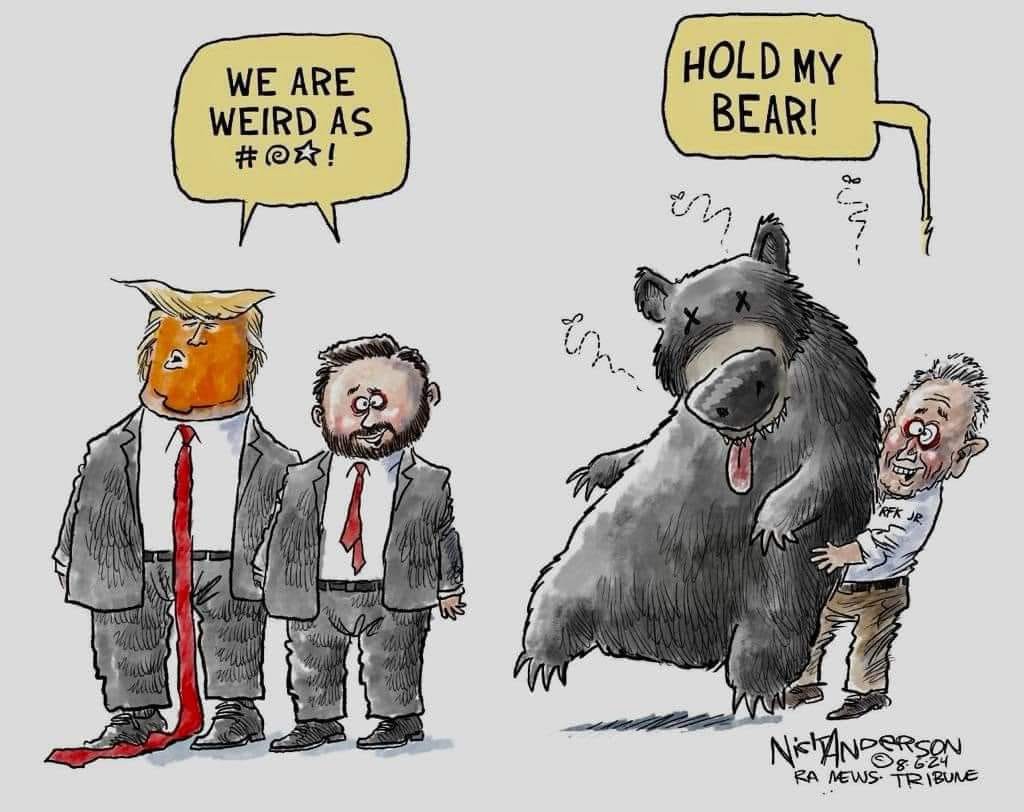Trump’s problem, per Politico —
‘MISUNDERESTIMATED’ ALL OVER AGAIN — One of the biggest complaints during the months of hand-wringing about Biden’s ineffectiveness was that he wasn’t really campaigning. He wasn’t driving a message or picking fights that gained any traction or breaking through with the public at all.
It may have made DONALD TRUMP complacent. Suddenly faced with a candidate who is adept at the basics, Trump appears knocked back on his heels and uncertain. VP KAMALA HARRIS is extending her streak looking nimble and sure-footed in all of the ways that her processor came up short.
Just over a month ago in Atlanta, Biden sputtered for 90 minutes in a studio, triggering the end of his campaign. Last night, Harris returned to the city in a show of force, hosting 2024’s largest Democratic rally, one that is garnering Obama-like coverage in the press today.
The NYT noted that her event “dwarfed Mr. Biden’s 2024 campaign events in both scale and enthusiasm, rivaling the types of crowds Mr. Trump regularly draws for his rallies in similar spaces.” (We’ll know for sure on Saturday when Trump hosts a rally at the same arena.)
There has been a lot of commentary about how absolutely flat-footed the Trump campaign has been since Kamala Harris became the presumptive nominee. It’s not like they didn’t know this might have happened. It’s all anybody talked about since the debate on June 27. Yet the Trump campaign clearly was not prepared.
David Kurtz wrote yesterday at TPM,
The Trump campaign had at least a month of forewarning that President Biden ending his re-election bid was a plausible scenario, and they let every reporter within earshot know that if that happened they were ready. It did, and they weren’t.
GOP vice presidential nominee JD Vance fessed up to donors in Minnesota over the weekend that Kamala Harris has thrown the Trump campaign for a loop:
All of us were hit with a little bit of a political sucker punch. The bad news is that Kamala Harris does not have the same baggage as Joe Biden, because whatever we might have to say, Kamala is a lot younger. And Kamala Harris is obviously not struggling in the same ways that Joe Biden did.
A sucker punch is a cheap shot, delivered without warning to an unsuspecting victim. It’s fitting that Vance would couch it in terms of victimization, the perpetual posture of MAGA adherents. Their constant whining about fairness grew out of conservatives’ own decades-long misinterpretation of special interests on the left as animated by “grievance” politics. The result was a transformation of older white voters into a special interest group of their own, with a parallel set of grievances that mirrored what they had railed against for so long. That’s how you get canards like reverse discrimination against whites.
Back in the real world, Harris’ ascension to the nomination was not without warning or time to prep. The failure of the Trump campaign to do so effectively remains inexplicable and a bit mystifying. They seemed wedded to what they thought was a winning campaign strategy against Biden. They may have been right about that; we’ll never know.
At the very least, I think it’s safe to say the Trump campaign is not staffed by the sharpest tacks in the box. And that goes up to the head tack. Nimble thinkers they are not. One wonders how they expect to lead a nation, where they might face unforeseen disasters at any time. But they don’t think about that, obviously.
Trump and his people have fallen back on racist and sexist insults. Here’s the latest —
Republican presidential nominee Donald Trumpsuggested thatVice President Harris wouldn’t be able to stand up to world leaders because of her appearance, adding that he didn’t want to spell it out but viewers would know what he meant.
“She’ll be like a play toy,” Trump — who has a history of using sexist attacks and stereotypes in campaigns against women — said in a Fox News interview with Laura Ingraham, a portion of which aired on Tuesday night. “They look at her and they say, ‘We can’t believe we got so lucky.’ They’re going to walk all over her.”
Trump then turned to look directly at the camera and added: “And I don’t want to say as to why. But a lot of people understand it.”
Seriously? Sorry I’m out of WaPo gift articles for the month, but that’s the gist of it.
Trump has also been claiming that Harris is antisemitic. Harris’s husband is a Jew. Steve Benen tells us how Trump rationalizes this —
During a speech last week, for example, the GOP nominee falsely said his likely Democratic rival is “totally against the Jewish people” — a curious claim about someone who’s married to a Jewish person — and as the Associated Press reported, Trump went even further yesterday.
Former President Donald Trump in an interview on Tuesday claimed Vice President Kamala Harris, who is married to a Jewish man, “doesn’t like Jewish people” and seemed to agree with a radio host who called second gentleman Doug Emhoff “a crappy Jew.”
The former president seemed quite worked up on the issue, ranting that Harris dislikes both Israel and Jews — it’s something “everybody knows,” Trump said, reality notwithstanding — while adding that Jewish voters are “fools“ to vote Democratic.
The radio host, Sid Rosenberg, proceeded to say that Harris’ Jewish husband, second gentleman Doug Emhoff, is “a crappy Jew” and “a horrible Jew.”
And while Trump didn’t use those words himself, as an audio clip makes clear, he seemed to agree with the condemnations.
Only an actual antisemite would be taken in by this argument, IMO. Someone might want to have a word with Sid Rosenberg.
IMO Trump’s problem is that he can’t run on policy proposals — one, he’s not that interested in policy that doesn’t benefit him; and two, he’d rather people didn’t know what his patrons are planning to do in his name. So negative campaigning, smearing his opponent, is all he’s got. That worked against Joe Biden. I don’t see it working against Kamala Harris.
I’d like to point out that, contrary to some Dem party mythology, Trump actually did run on policy in 2016. He promised better health care, a return of manufacturng jobs, and tough measures against the opioid epidemic, among other things. Oh, and he was going to build a wall along the southern border. He accomplished absolutely none of that. He didn’t even make a serious effort to address most of that, except for the wall. He did build about 450 miles of the wall along the 1,954-mile border. I understand parts of the wall are damaged, and it’s unclear what good it’s done given the expense and fuss of putting it up. But it’s one of the few things he followed through on. I’m surprised he isn’t promising to finish it (if he did, I missed it). My point, though, is that he can’t run the same campaign he ran in 2016, when his foil was Mrs. Neoliberal Status Quo Establishment.
Big events tend to resonate with the myths deeply buried in human psyches from ancient times. U.S. presidential elections sometimes take on vibes from one of our great myths, the eternal struggle between Bugs Bunny and Elmer Fudd. This may not always be true. But when it is true, the candidate who most energetically channels Bugs Bunny is going to win. Barack Obama and Bill Clinton, in different ways, were clearly the Bugs Bunny candidates against Elmer Fudds — George H.W. Bush, Bob Dole, John McCain, and Mitt Romney. Although he probably really didn’t win, I’d have to say that George W. Bush was more Bugs Bunny than earnest Al Gore, alas. And maybe Hillary Clinton’s real problem was that she didn’t have it in her to be Bugs Bunny.
Donald Trump lacks the self-awareness and basic cool to ever be Bugs Bunny. On a good day, Joe Biden’s “Dark Brandon” persona was much closer. But the spirit of Bugs abandoned Joe when he most needed it. And Donald, with his weird riffs on sharks and Hannibal Lechter, might have seemed kind of Bugs Bunny-ish to his followers, although a true Bugs is never a hater or a bully. It seems to me that what’s happening now is that Kamala Harris has embodied the Bugs Bunny role, and Trump is revealed as an exceptionally ugly Elmer Fudd. If she can keep this up, she’ll win.




